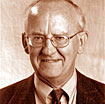Commentary on Psalm 146
Each day began the same way in the elementary school where I grew up.
The bell rang, we stood up, put our right hands over hearts, and recited, “I pledge allegiance to the flag of the United States of America.” There was a patriotic spirit in our Lutheran church, too. At the front were two flags: that of the US and also the Christian flag, symbolizing our loyalties to God and country. Nowadays I belong to the governing board of the lake association where we live. Each monthly meeting begins the same way. We stand, face the United States flag, put our right hands over our hearts, and recite, “I pledge allegiance…”
Veteran’s Day, November 11, falls on a Sunday in 2012. The preacher will no doubt wish to say something recognizing and expressing appreciation to war veterans. This psalm fits with the spirit of the day since it speaks about allegiance and about trust. To whom do we owe our allegiance? And in whom do we trust?
A Closing Quintet: Psalms 146-50
Psalms 138-145 make up the final collection of psalms marked “Of David” in the Psalter. The collection concludes with the promise, “My mouth will speak the praise of the LORD…” (145:21). Psalms 146-150 then express that praise, each psalm beginning and ending with “Praise the LORD!” (in Hebrew, “Hallelujah!” ). This quintet closes the entire Book of Psalms.
The circle of those invited to praise in this closing quintet is continually expanding. First, the individual calls himself or herself to praise (“O my soul”) and resolves to do so (146:1-2). Then the call goes out to the people of Jerusalem (147:12) or Israel (149:2) to praise. Finally, the quintet closes with an invitation to “everything that breathes” to join in the praising (150:6).
The structure of Psalm 146 exhibits the usual two-part pattern of the hymn. Psalm 113 is a good example of that pattern, with a call to praise (1-4) followed by reasons for praising (5-9). Psalm 146 begins with a call to praise (1-2) and supplies a number of reasons for praising (5-9). Verses 3 and 4 insert some words of instruction (3-4). Verse 10 consists of a confession of faith and a final call to “Praise the LORD.”
Who Can I Trust? (146:1-4)
Verses 1 and 2 suggest a kind of allegiance that will never disappoint. Here is a trust in God that can be expressed in praise for a whole lifetime! The same resolve is expressed in Psalm 104:33.
While statements like the American “Pledge of Allegiance” are expressions of the loyalty persons owe to nations, verses 3 and 4 of this psalm warn against giving our ultimate allegiance to any human institution. Political leaders, even kings and princes are human, with all the faults and limitations that are common to humans. And these leaders won’t be around forever. They are mortals (the Hebrew word is adam) who will one day die and return to the earth (Hebrew: adamah). This Hebrew play on words could be reproduced in English by saying they are humans and will return to the humus. One day the breath (one could translate the Hebrew as “wind”) of these politicians will stop blowing and the promises and platforms and plans of these windbags will disappear with them.
Who Is Truly Happy? (146:5-9)
A few words of instruction are inserted into the middle of this psalm of praise. The Book of Psalms begins with a description of those who are happy (Hebrew: asherey, as in Psalm 1) and now concludes with the same “Happy” (asherey) promise. The reasons for happiness are stated clearly: such persons know that their help (for the present) and their hope (for the future) are with the Lord their God. The Lord is the creator of the heavens, the earth, and the sea. Note that the same ordering comes up in Psalm 104, which speaks of the heavens (104:1-9), the earth (10-24), and the sea (25-26).
Verse 6 offers some of the centrally important biblical words used in connection with God. God keeps faith (Hebrew: emet) forever and executes justice (Hebrew: mishpat) for the oppressed and the hungry. Happy is the person who has this God! In the tradition of the great prophets, the psalmist declares the Lord’s special concern for the widow, the orphan, the oppressed, the hungry and the stranger (146:7, 9). With the reference to the contrasting lifestyles of the righteous (verse 8) and the wicked (verse 9), this psalm in the concluding quintet again links up with the opening psalm in the Psalter (1:6).
Toward Preaching and Teaching
Since Veteran’s Day falls on a Sunday this year, and since this psalm is concerned about loyalty to God and loyalty to government (“princes,” verse 3) this may well be the occasion to deal with the theme of God and government or the relationship between God and Caesar (Matthew 22:15-22).
Other obvious texts will include Romans 13:1-7, though one must exercise care in noting that what is said is not to be applied to all government, but to good government (verse 3). Those of us who have spent the majority of our lives in the twentieth century know well the results of the sort of blind obedience to Romans 13:1 that marked some of those who followed the Nazi regime.
The preacher or teacher will be sensitive to these issues, especially on a national holiday or at the time of a national election, such as the one on November 6, 2012. Preaching and teaching will need to sail a course that avoids the extremes of mindless patriotism (“my country – right or wrong”) or irresponsible apathy (“the church should not meddle in politics” or “I’m not voting this year!”). The Christian life includes both pledging allegiance to country and confessing faith in God.

November 11, 2012